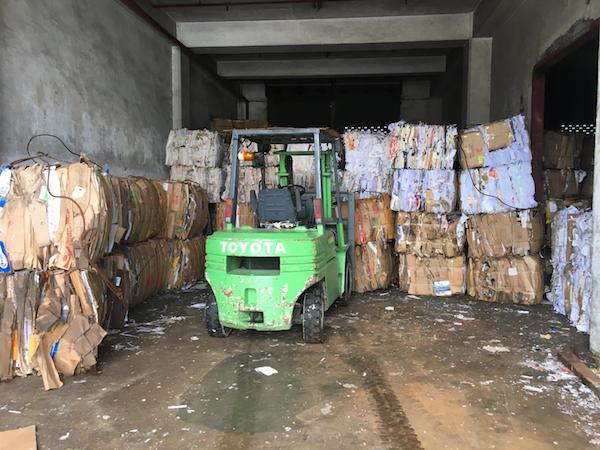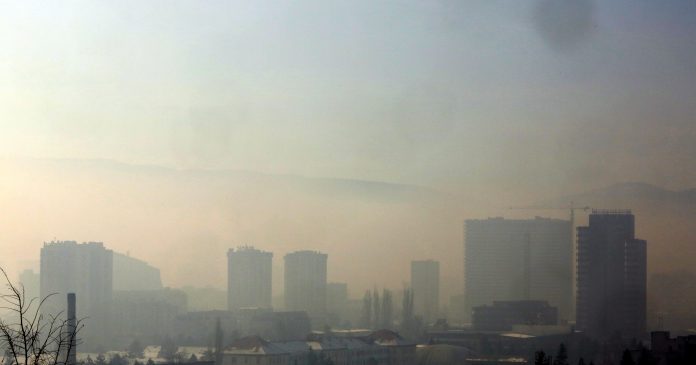Carbon emission cuts, newer energy and waste fees and a large increase in sustainable energy vehicles are proposed in the Macau SAR five-year environment protection plan for 2021-2025 published today (Wednesday) by the Environmental Protection Bureau (DSPA).
The Macau SAR Second Five-Year Plan for Economic and Social Development for the 2021-2025 period emphasizes that authorities will advance efforts to reach peak carbon emissions before the previous target in 2030, and aim to make the city a ‘low carbon emission center’.
Chief Executive Ho Iat Seng had indicated previously that the SAR would follow the country’s environmental goals, namely, to reach peak carbon dioxide emissions by 2030 and become “carbon neutral” before 2060.
‘In recent years, the risks posed by climate change are increasingly close to us, which is why importance and concern were raised in the work of environmental protection. Our homeland, the different countries and regions have successively commitments to peak carbon emissions and carbon neutrality, so that the green and low-carbon development is on an accelerated path,’ the DSPA report notes.
The report underlines that according to national targets, the respective emissions of the SAR in 2025 must have a reduction of more than 55 per cent when compared to levels reported in 2005 and calculated according to CO2 emissions to gross domestic product ratio.
The report indicates that in 2005 the SAR registered a ratio of CO2 tonne per million patacas of GDP of 18.9. Using this amount as a reference, the default amount should be lower than 8.5 (CO2 eq/tonne/million patacas).
The DSPA report notes that after the implementation of the ten-year Macau Environmental Protection Plan for (2010-2020)”, some environmental problems were alleviated but new environmental issues continue to arise due to the change in global climate environment, the evolution of Macau’s social economy and the emergence of new pollutants.
As part of its carbon emission reduction plans, authorities intend for 90 per cent of local public buses to be moved by ‘new energies’ by 2025, a considerable increase from the only nine per cent reported in 2020.

Authorities also predict for the rate of electric vehicles among newly registered vehicles in the city to jump from 9.4 per cent to something between 15 and 20 per cent in 2025.
Other approaches will also include constantly reviewing the standards for vehicle exhaust emissions and new imported motorcycles and vehicles in circulation, as well as modernizing the rules on vehicle fuels and strengthening the monitoring of motor vehicles whose pollutant emissions exceed the limit value.
The monitoring and management of emissions of atmospheric pollutants in industrial establishments and businesses would also be improved, with the standards and
legislation for emissions by the main fixed sources of air pollution to be optimised.
The Macau SAR government has also pledged to actively promote green construction, introduce more green building elements in public works and, gradually in private works.
At the same time, plans include stimulating the application of energy-powered products or equipment renewable sources such as solar photovoltaic energy in construction design, in order to reduce traditional energy consumption.
The Environmental Protection Energy Conservation Fund would also be used to encourage companies to apply environmental protection and energy conservation technologies, and carry out energy use audits.
The plan also makes mentions to encourage the financial institutions to develop “green finance”, with recent years having seen some state-owned groups and gaming operators issue green bonds via the local Chongwa (Macao) Financial Asset Exchange.
A review of energy use tariffs would also be prepared, with a new tier tariff proposal to be advanced in order to penalise larger energy users.
As for air quality, the DSPA report predicts the percentage of days recorded at air quality monitoring stations annually with ‘good’ or ‘normal’ air quality will remain the same at more than 85 per cent, with the annual average concentration of PM2.5 per cubic metre to remain lower than 25 μg/m3, the intermediate target-2 established by the World Health Organization.
The plan points out that the previous 10-year plan caused a drop in the
annual average concentrations of sulfur dioxide (SO2), particulates inhalable in suspension (PM10), fine particles in suspension (PM2.5) and nitrogen dioxide (NO2), with the general air quality of Macau registering an improvement.
However, the average annual concentration of ozone (O3) was said to have gradually increased and caused the main impact on Macau’s air quality.
‘This situation is similar to the regional variation in the Pearl River Delta, therefore deserving our attention and of a solution,’ the report adds.
Authorities currently plan to impose air pollutant emission limits and management standards of the premises of industrial establishments for the manufacture of concrete and from boilers in industrial and commercial establishments in the next five years, and for air pollutants from waste incineration establishments.
A total of 5,000 new trees will also have to be planted until 2025, with 120 hectares of green areas in local hills and flora to be recovered.
The report also warns that following the rapid development of Macau’s social economy, the increase in population and the number of tourists, the constant rise in the level of consumption and the democratization of the culture of “disposable consumption”, the amount of different types of solid waste has increased significantly
and continuously.
‘In particular, around 40 million m3 of construction waste after the start-up of the construction materials waste landfill and the amount of solid waste urban areas also had an increase of more than 70 per cent compared to 10 years ago. All this put extremely heavy pressure on Macau’s solid waste treatment.
Centred on the ‘polluter pays’ principle, the SAR government will promote a waste levy collection system for urban solids, including the charging system on construction waste that has already been implemented, and consider a levy charging regime on the treatment of special and hazardous waste, in order to create conditions for a future household waste levy system.




















